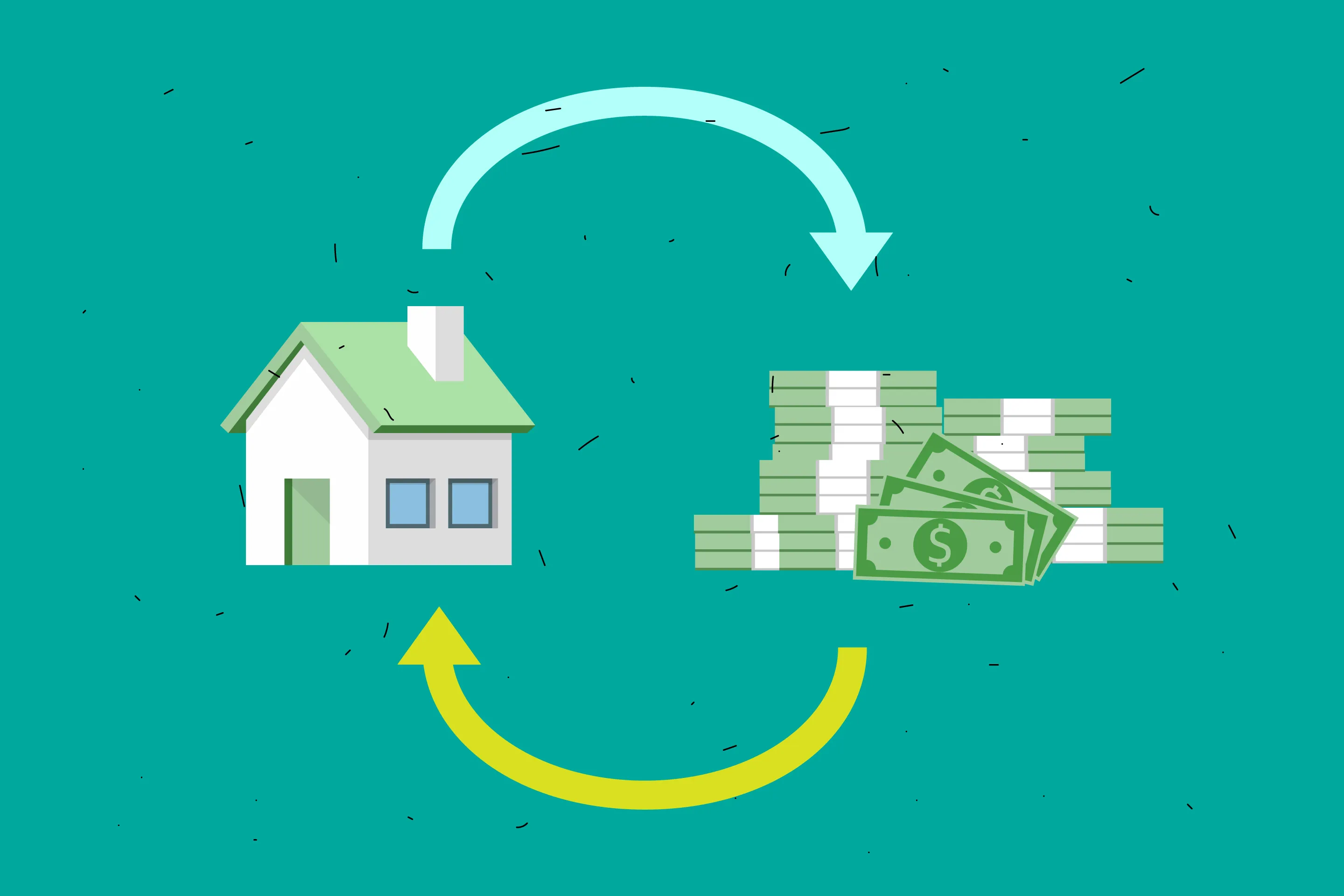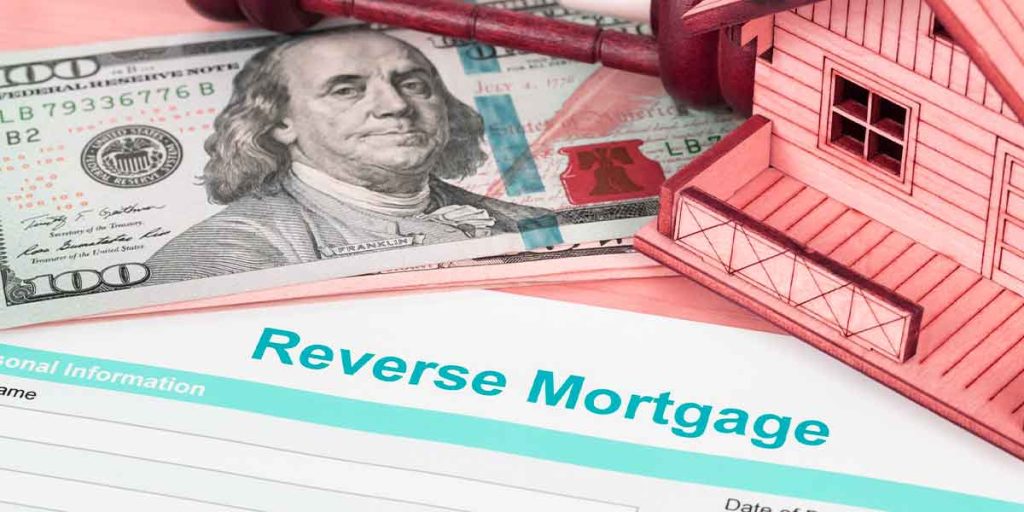Unlock Financial Freedom: Your Overview to Buying a Reverse Home Mortgage
Understanding the intricacies of reverse mortgages is essential for property owners aged 62 and older seeking financial liberty. As you consider this alternative, it is critical to realize not just exactly how it works but additionally the effects it might have on your monetary future.
What Is a Reverse Mortgage?

The essential charm of a reverse mortgage lies in its prospective to improve financial flexibility during retired life. Homeowners can utilize the funds for numerous functions, consisting of clinical expenses, home enhancements, or daily living prices, thus offering a safety and security net throughout an important phase of life.
It is vital to recognize that while a reverse mortgage enables enhanced capital, it additionally decreases the equity in the home in time. As rate of interest accumulates on the exceptional finance equilibrium, it is essential for potential customers to thoroughly consider their long-lasting monetary strategies. Consulting with a reverse home mortgage or a financial advisor specialist can provide important insights into whether this option aligns with an individual's financial objectives and conditions.
Qualification Demands
Comprehending the qualification demands for a reverse home loan is important for property owners considering this financial option. To certify, applicants have to go to the very least 62 years old, as this age criterion allows elders to access home equity without regular monthly home loan payments. Additionally, the property owner needs to inhabit the home as their primary residence, which can consist of single-family homes, specific condominiums, and made homes satisfying particular guidelines.
Equity in the home is an additional crucial need; house owners typically require to have a substantial amount of equity, which can be determined via an evaluation. The amount of equity readily available will directly affect the reverse home loan amount. Furthermore, candidates should show the capability to keep the home, including covering building taxes, homeowners insurance, and maintenance prices, making sure the residential or commercial property continues to be in great problem.
Furthermore, potential borrowers need to undertake an economic evaluation to review their income, credit score history, and general economic situation. This evaluation assists lending institutions establish the candidate's ability to meet continuous commitments related to the residential property. Fulfilling these requirements is vital for safeguarding a reverse mortgage and making sure a smooth monetary transition.
Benefits of Reverse Home Loans
Various advantages make reverse mortgages an enticing choice for elders aiming to boost their monetary flexibility. purchase reverse mortgage. One of the primary advantages is the capacity to transform home equity right into cash money without the need for month-to-month home mortgage settlements. This attribute enables senior citizens to gain access to funds for different demands, such as clinical costs, home renovations, or daily living expenses, consequently easing economic stress and anxiety
In addition, reverse home mortgages give a safeguard; seniors can remain to stay in their homes for as lengthy as they satisfy the car loan requirements, fostering security throughout retirement. The earnings from a reverse home loan can likewise be used to postpone Social Security advantages, possibly resulting in higher payments later on.
Additionally, reverse home mortgages are non-recourse car loans, indicating that borrowers will certainly never owe more than the home's worth at the time of sale, securing them and their successors from economic responsibility. Finally, the funds received from a reverse home loan are typically tax-free, including one more layer of financial alleviation. On the whole, these advantages placement reverse mortgages as a sensible option for elders seeking to enhance their monetary scenario while maintaining their cherished home environment.

Prices and Charges Included
When taking into consideration a reverse mortgage, it's necessary to recognize the different prices and charges that can impact the overall economic image. Understanding these expenses is essential for making a notified decision concerning whether this financial product is appropriate for you.
Among the key costs connected with a reverse home loan is the source cost, which can vary by lender however generally varies from 0.5% to 2% of the home's appraised value. Furthermore, homeowners ought to anticipate closing costs, which may include title insurance coverage, evaluation charges, and credit rating report charges, generally amounting to several thousand dollars.
One more considerable cost is mortgage insurance coverage premiums (MIP), which protect the lender versus losses. This cost is generally 2% of the home's worth at closing, with a continuous annual premium of 0.5% of the staying loan balance.
Last but not least, it is essential to consider recurring prices, such as real estate tax, property owner's insurance, and maintenance, as the consumer continues to be liable for see here now these costs. By carefully assessing these fees and prices, house owners can better evaluate the financial effects of pursuing a reverse home loan.
Actions to Obtain Begun
Beginning with a reverse mortgage includes numerous essential actions that can help improve the procedure and ensure you make informed choices. Assess your monetary scenario and determine if a reverse home loan aligns with your long-lasting objectives. This consists of evaluating your home equity, present financial debts, and the necessity for extra revenue.
Next, research study numerous lenders and their offerings. Search for respectable institutions with favorable reviews, look at here transparent charge frameworks, and competitive rate of interest rates. It's important to compare terms to locate the best suitable for your demands.
After picking a loan provider, you'll need to complete a comprehensive application procedure, which generally calls for paperwork of earnings, possessions, and property information. Participate in a therapy session with a HUD-approved therapist, who will certainly give insights into the implications and duties of a reverse home loan.
Final Thought
In conclusion, reverse home mortgages provide a viable alternative for elders seeking to boost their monetary security during retired life. By converting home equity right into easily accessible funds, property owners aged 62 and older can address different monetary needs without the pressure of monthly settlements.
Comprehending the intricacies of reverse home mortgages is vital for homeowners aged 62 and older looking for financial flexibility.A reverse mortgage is a monetary item developed largely for property owners aged 62 and older, permitting them to convert a part of their home equity right into cash - purchase reverse mortgage. Consulting with a monetary consultant or a reverse home mortgage expert can give valuable insights right into whether this option aligns with a person's economic goals and circumstances
In addition, reverse mortgages are non-recourse loans, implying that debtors will certainly never ever owe more than the home's value at the time of browse this site sale, securing them and their beneficiaries from monetary obligation. On the whole, these benefits position reverse home loans as a useful option for seniors looking for to boost their economic circumstance while keeping their valued home setting.